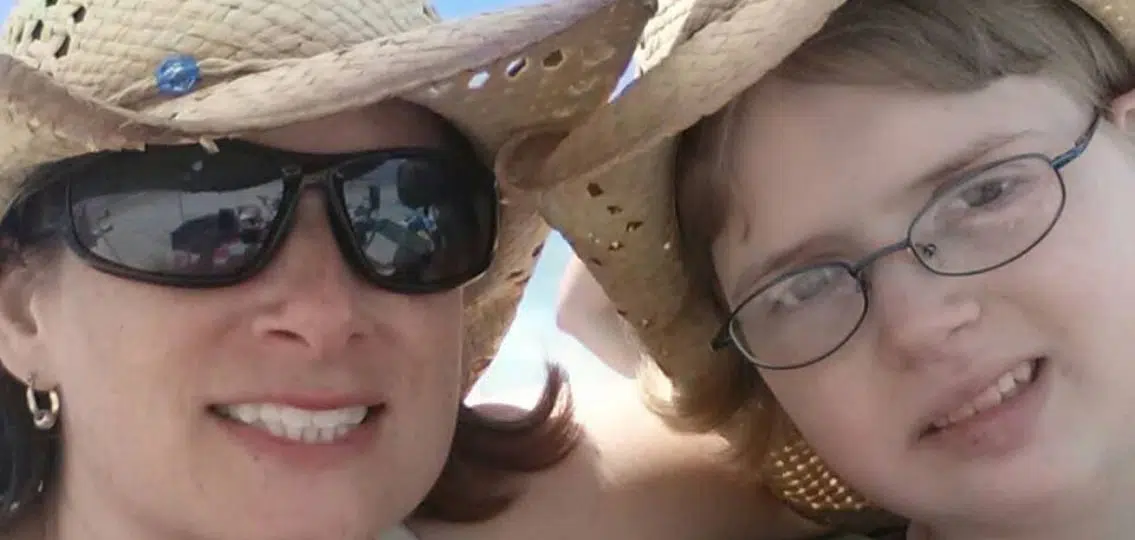Experts have written book after book about how parents can instill independence and responsibility in typically developing children. Those books didn’t apply to me, though, nor to my child with her specific needs. My late daughter Emily had cognitive and physical disabilities. She didn’t have a clear path toward independence like most other kids.
Moving away from home was never an option for Emily because it involved risk and planning not typically encountered by most young adults. I still tried to give her opportunities to increase her independence, though, and I think in a broad sense, my parenting style was typical for most other parents. I didn’t always know what I was doing. I didn’t know exactly where to set limits or where to allow her more freedom. I spent a lot of time crossing my fingers that I made the right decisions.
What could have made my parenting journey easier was having more understanding in my local community and a greater number of peer friendships. I think I didn’t have that support largely because there were plenty of misconceptions about what it’s like raising a child with a disability and/or chronic illness. And so, for the sake of others dealing with similar issues, I’m here to bust some of those myths.
Five Myths About Parents of Teens with Chronic Illness/Disabilities
1) Myth: We know what we’re doing.
Yes, we know our child better than anyone else knows them. I did a huge amount of research on my child’s diagnosis (or diagnoses, as is the case with many). Yet, when a new symptom reared its ugly head, I floundered. I had to ask doctors, and anyone else with information, question after question. Then I went home and conducted my own research, which usually left me still scratching my head.
And, yes, I was well-versed in the services available to my child. But really, I only stumbled on that knowledge because someone else in my shoes pointed me in the right direction. We don’t know what we don’t know. Scarier, I didn’t know what services would look like as my child aged into an adult. I wish that I had.
2) Myth: We have a wide set of friends just like us.
We’re ever so thankful when we have a friend in our lives who also has a child with a disability or chronic illness. However, we hardly see each other. My child and their needs dictate when, where, and how often we do something social. My friend is in the same situation. It takes the stars aligning just right for our children to sync up and allow us to get together. Even then, if our kids come along, it usually means we’re focused on their needs, which leaves next to zero time for us parents to be social and spend time together. As a parent of a child with a disability, I missed having time to spend with my friends.
3) Myth: We can’t be bothered/don’t have time for casual friendships.
I’m a needy friend (see #2). I know that. But I’m also a human who appreciates a beer, chips, and laughter around the table on the occasional evening. I have a sense of humor. It might even be bigger than yours because I need it to get through some dark days.
So, please, ask me to hang out with you. Better yet, ask if it’s okay to come over to my house and hang out (leaving my house can sometimes be hard). Bring a drink and I’ll provide a couch where we can unwind and laugh about the many things life throws our way.
4) Myth: We don’t experience typical parenting angst.
I’m no saint. My kid had to overcome more obstacles during the day than most and she underwent some horrific medical procedures. Still, I’d get frustrated with her. Even with her disabilities, she knew how to tick me off. She had the attitude of a typical teenager and an eye roll to go with it. Sometimes, I’d lose my cool, yell at her, and send her to her room to “think about what she did.” Maybe I shouldn’t have lost my cool? I don’t know. But I’m human, she was human, we all make mistakes, and I’m willing to bet that you feel the same way sometimes when parenting your child, too.
5) Myth: We’re different from you.
Our experiences may be different, but I’m a parent just like you. I love my kid fiercely. I’ll do whatever it takes to give them a happy, healthy life full of ease. I will love them to the end of earth. I’m just like you.




